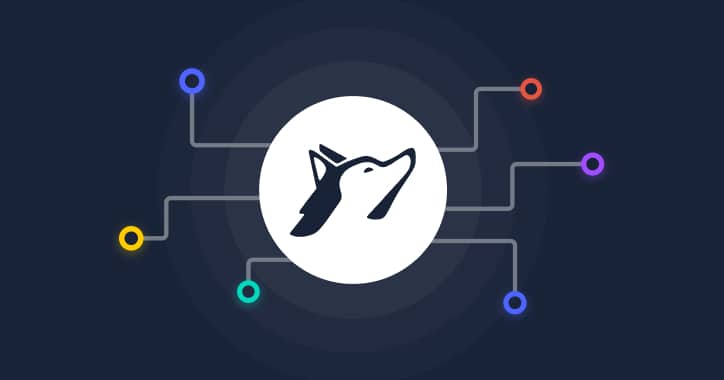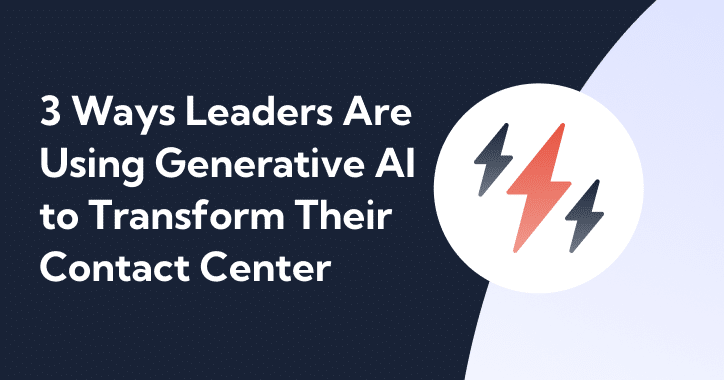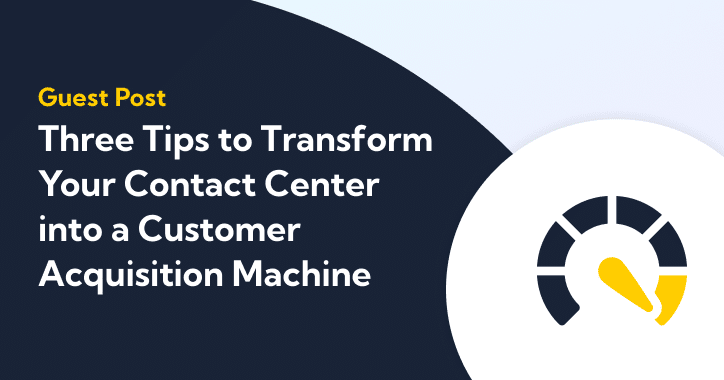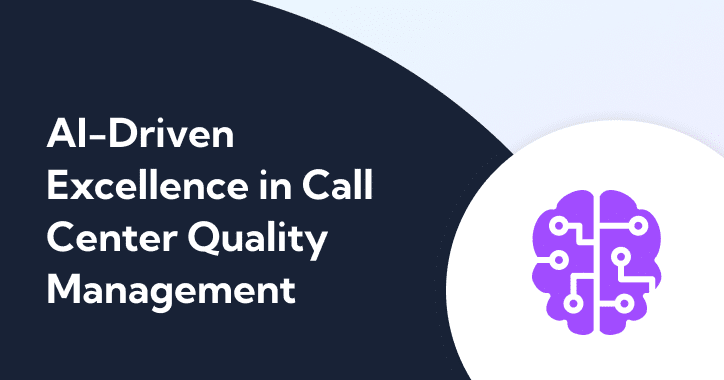While “conversation intelligence” may be a relatively new term, the concept itself dates back to the early days of speech recognition and natural language processing. Today, conversation intelligence plays a pivotal role in numerous domains, including customer service, sales, market research, and even therapy, transforming how organizations gather insights and make data-driven decisions.
But what is conversation intelligence and how is relevant to modern contact centers? Let’s find out.
What is Conversation Intelligence?
In the 1950s, researchers began exploring ways to teach computers to recognize and understand human speech, paving the way for the development of voice recognition systems. As computing power increased and algorithms improved, the field of conversation intelligence expanded, encompassing sophisticated techniques such as sentiment analysis, speech-to-text conversion, and real-time conversation analysis.
Today, conversation intelligence is software that uses AI to analyze speech to produce insights. Conversational AI plays an important role in business, as it can help teams identify common challenges faced by customers. It’s also a great way for them to assess the performance of call center reps.
For example, some conversational AI analytics can measure the amount of times reps go off script or, conversely, how many times they use approved words and phrases. Some tools even offer real-time coaching so that reps can turn things around on the spot if need be. By analyzing conversations, businesses can improve the call experience for reps and customers alike.
As the conversation intelligence solutions market grows, more and more businesses are gaining access to advanced software that is transforming the way they interact with their customers. The technology continues to evolve, offering new and innovative opportunities for analyzing conversations in a variety of contexts.
How Does Conversation Intelligence Software (CI) Work?

A conversation intelligence tool extracts strategic insights from conversations by utilizing conversation analytics. Conversation analytics uses artificial intelligence (AI) and natural language processing (NLP) to derive useful data from human speech. In the process, computers analyze conversations and pull critical data from them.
The natural language processor transcribes the recorded speeches to make them readable for the AI-powered CI software. Then, using machine learning and advanced algorithms, the software can spot patterns and conduct in-depth data classification.
Conversation intelligence platforms can extract and process data from spoken and typed speech, meaning it works for contact center phone calls, chatbot conversations, and voice assistant queries and commands.
What are Conversation Intelligence Tools?
Simply, conversation intelligence tools allow users to analyze phone calls or in-person conversations. There are many different types of tools available on the market, and what works for one business may not be ideal for another, so it’s important to do your research to choose the contact center software that’s right for your company.
Finding the best conversation intelligence software can be difficult, especially considering the size of the market, but it’s important to use tools that are most compatible with your business goals and objectives, and this might take some digging around.
For example, conversation intelligence HubSpot tools, for instance, can be helpful to HubSpot users. Likewise, Dynamics conversation intelligence software may be a good choice for Dynamics 365 users. Different tools are compatible with different types of platforms, and it’s important to find solutions that are most aligned with your existing software and systems. That way, you can get the best of both worlds. You get access to new tools while continuing to use any software that’s already working well for your business.
Salesforce Einstein tools enable Salesforce users to monitor and analyze conversations. For example, with these tools, users can enhance Salesforce meetings by tracking conversations, offering real-time and post-call feedback, and providing insights into common problems faced by customers. This might include looking at repeated words or phrases to pinpoint specific issues or analyzing the tone of voice to gauge customer satisfaction. Einstein Conversation Insights can thus be useful for those that want to understand more about customers’ pain points, as well as the products and services they enjoy.
Benefits of Conversation Intelligence Platforms
Here’s how CI software can be beneficial for your business:
On-the-job Training and Support

According to a recent report, 59% of customers believe that businesses should invest more in training their customer service agents. The problem is no amount of training will offset the effects of human errors.
With CI software, businesses can improve customer conversations with real-time agent support, response checklists, and dynamic prompts.
More Efficient Agent Onboarding

At least one out of every 5 new hires is unlikely to recommend an employer to people in their network, mostly due to a bad onboarding experience.
Successful onboarding should make new hires confident in their jobs. This often involves making them memorize lots of stuff, such as messaging, solutions, and pricing, which can also set back managers. Doesn’t sound much fun, does it?
Conversation intelligence tools allow you to hire and onboard agents smoothly.
Traditionally, training a new agent takes 15 days on average. But with CI tools, you can cut that time in half or more — and get agents on the phone sooner.
Conversational AI keeps your operations running at maximum capacity, ensuring that your customer experience is getting better all the time, not worse. It can also help mitigate high turnover rates due to a lack of improper onboarding.
By implementing conversation intelligence software, you’ll be able to provide your new agents with a great onboarding experience with tools that give them the right information at the right time.
Eliminates Guesswork

Sometimes, it can be unclear why your customer has decided to make a purchase or ultimately look elsewhere. You may try to analyze conversations yourself and figure out what happened based on assumptions. However, this approach relies heavily on human judgment, which as we know, isn’t always accurate.
Conversation analytics provide in-depth insights into what your customers are interested in and what might prevent them from buying your product or service. You’ll learn more about your customer behavior and what efforts are moving the needle in the right direction.
Maintains a Positive Brand Image
In this day and age, customers care about being heard more than ever.
Based on recent data, up to 36% of customers will share their customer support experience on social media and review websites like G2 and TrustRadius. Improperly handling one customer can have a domino effect and can severely impact your company’s reputation — and not in a good way.
Conversation intelligence helps ensure that agents are all speaking your brand language and providing the best customer experience possible.
Maximizes Productivity with Natural Language Processing (NLP)
Customer support and sales managers might be able to join a few customer calls, but most calls are fully handled by agents. At the same time, reviewing all the calls at the end of the day just isn’t realistic. Not to mention, it won’t derive the expected results.
Artificial intelligence conversation tools with NLP capabilities can help managers be more productive by providing detailed reports that include real-time data and analytics from all the calls for a specified period. By taking a single glance at these reports, managers can understand things like customer sentiment, what phrases are winning calls, which soft skills being used, and more.
Similarly, agents are more productive because they don’t have to ask their managers for help as often when they get real-time guidance from CI software. Instead of wasting time putting customers on hold to communicate with their managers, agents respond to customer questions and complaints quickly.
On top of that, some CI software automatically takes notes on the agent’s behalf, enabling them to focus on handling the customer instead of trying to jot down or type important information while listening.
Scalability
Conversation intelligence software helps you gain actionable insights from large numbers of conversations efficiently, providing you with data-based recommendations and analytics that you can rely on for continual call improvement. Think of new phrases to win more customers or sales close techniques that increase revenue.
Some conversation intelligence tools, such as Balto, allow you to take those learnings and disseminate them to your whole team’s playbook with the press of a button.
Integrations
Conversation intelligence tools seamlessly integrate with other apps and platforms for a smooth exchange of conversation data. This includes pulling website customer experience data from UX-testing platforms and conversion data from marketing channels like Facebook Ads.
Integrating with a CCaaS or UCaaS platform can also help you go from contact center to profit center by increasing sales, maximizing customer satisfaction, and reducing the average handle time.
Information Sharing
CI software ensures that all team members are informed of key customer information, making it easier to distribute to all involved departments and stakeholders. Traditionally, this information was only accessible to the person handling the call, presenting a missed opportunity for other teams to improve their performance.
Difference Between Conversation Intelligence and Call Tracking Software
There’s a common misconception that conversation intelligence and call-tracking software are the same, but that’s not the case.
Call tracking is considered a feature of CI software. However, there are standalone call-tracking tools that lack the expansive capabilities of an all-in-one conversation intelligence solution.
Call tracking software allows you to track the performance of your marketing efforts by telling you which marketing channels are driving more revenue and sales calls. For instance, if your marketing campaign involves Google Ads, Facebook Ads, and cold emailing, call tracking software will help you identify the percentage of phone calls that came from each of these marketing channels. This makes it easier for you to tweak and optimize your overall marketing strategy by focusing on the channels that generate the highest number of leads.
On the other hand, CI software can analyze conversations to learn about the intent, sentiment, outcomes, and decisions of each call, allowing for real-time actions to be implemented based on the provided insights.
Typically, a conversation intelligence platform features call tracking, natural language processing, integrations, and conversation analytics. It’s intended for revenue teams across sales, eCommerce, and customer experience.
How to Use Conversation Intelligence to Enhance the Customer Experience and Increase ROI?
Find nuanced feedback and solve product issues
Conversation intelligence allows customer support agents or sales reps instant access to key moments in conversations. From these key moments, customer support agents and sales reps can review any issues the client or potential customer has and then take action.
Also, insights gained from the CI can be used to determine if a company’s product does not align with the customer’s needs. A keyword may trigger a better alternative product.
Ultimately, this will make the customers feel listened to, knowing that what’s sold to them is a better-fitting product.
Obtain the full extent of customer feedback
Organizations can use CI platforms to see the full extent of customer feedback. Feedback can either be from what customers are indirectly saying in the conversations or from what they say directly to the sales reps or customer service agents.
Sales teams can then analyze the conversations for things like intent, emotion, and objections. This allows organizations to completely understand the motivation of each customer and take measures to avoid objections in the future.
Monitor sales team performance
CI also makes it easy to determine top performers.
Through sales conversations, sales reps can be analyzed for their effectiveness in making a sale. Such analysis can reveal what conversation styles are efficient at driving more deals and which scripts are effective at building rapport. This process can be eased by using call center scripting software solutions.
Conclusively, CI can help analyze conversations to create best practices for sales teams. And in turn, enable sales leaders to train new reps or customer service agents more effectively.
Real-Time Intelligence vs Conversation Intelligence
Real-Time Intelligence is a technology that analyzes conversations as they’re happening rather than after the fact. This can be extremely helpful for agents that wish to receive real-time feedback so that they can change gears as necessary.
Real-time AI has fundamentally transformed the conversational platforms market, allowing users to obtain detailed insights into the customer experience and strategize to better serve customers going forward. AI-powered insights allow organizations to take control of conversations in order to provide maximum value to customers and ensure they receive the proper assistance.
Some conversational AI platforms, like Balto, offer real-time AI coach technology. This means that agents can receive real-time guidance rather than a list of feedback after the call ends. Real-time assistance is crucial to helping call center agents develop their skills. It’s a great way to help them understand what they’re doing wrong and what they should say to shift the conversation in a more productive direction. Agents may forget comments that are made later on, but when coaching is provided in the middle of a call, it can help agents to remember what they’re learning as they’re applying feedback in real-time.
Every Single Call Matters!
The relationship between you and your customers can improve or fizzle out with one call.
Your goal is to win more customers, and Balto makes it possible. By leveraging conversational AI, Balto provides real-time guidance and insights to customer support and sales agents, resulting in better customer interactions, more conversions, and higher customer retention rates.
Book a demo now to learn more about what Balto is capable of!






